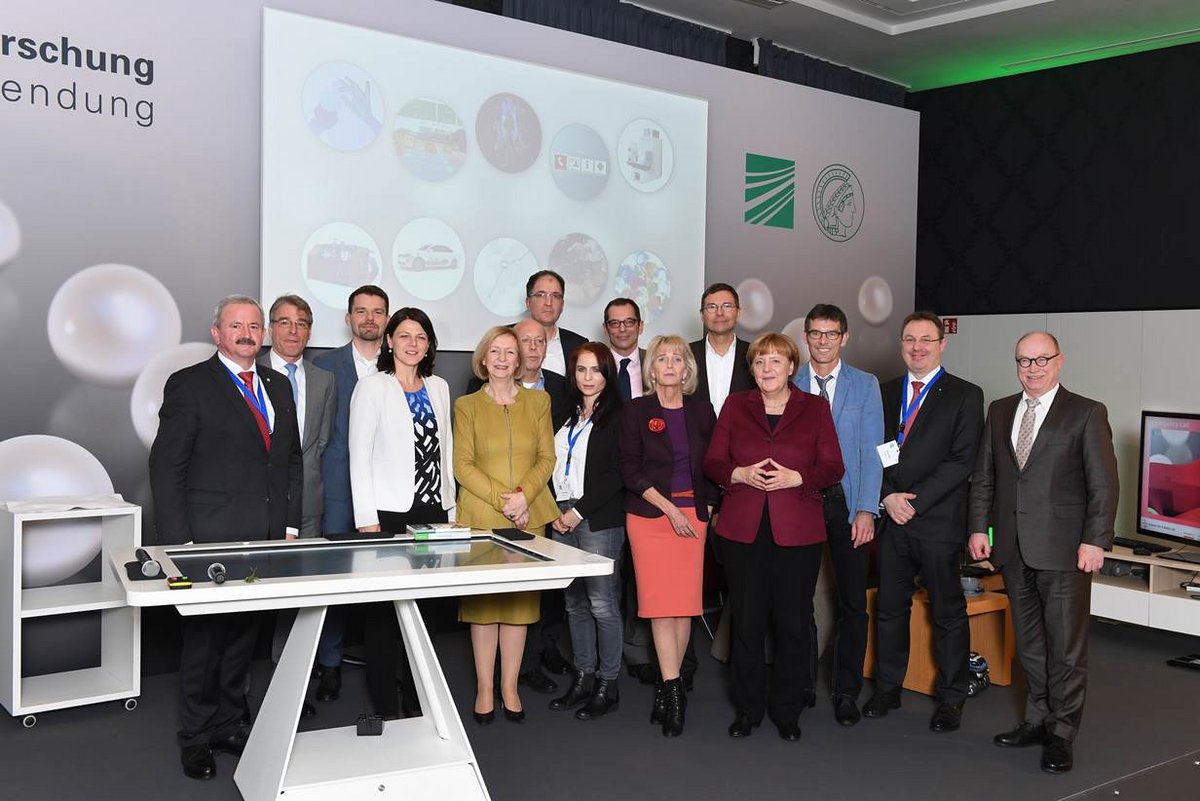
Locusts for Angela Merkel
Professor Martin Wikelski presents his research to the German chancellor
The Max Planck Society and the Fraunhofer Gesellschaft organised a lecture event titled "Perlen der Forschung" (gems of research) in Berlin on 10 January. Among the guests were the German Chancellor Angela Merkel, Federal Minister for Education and Research Johanna Wanka, and State Secretary for Economic Affairs and Energy Rainer Sontowski. As one of ten researchers invited to this special event, Professor Martin Wikelski, honorary professor at the University of Konstanz and director of the Max Planck Institute for Ornithology in Radolfzell and Seewiesen, presented his research on how animals interact with their environment.
Martin Wikelski's, regarded as one of the world’s leading specialists in his research field, is utilizing a new approach: observing animals in the wild over the course of their entire life cycles. The biologist and ornithologist initiated the satellite system ICARUS, which will make it possible to continuously track small organisms around the world starting in 2017. Wikelski and his team also developed the global database Movebank. The long-term goal of his research is to observe life on earth by monitoring the behaviour of animals, particularly the movement and migration of animals, even of small ones such as locusts. This in turn will allow scientists to predict natural disasters or outbreaks of diseases such as Ebola.
Martin Wikelski received the Max Planck Research Award in 2016 and is a member of the emerging cutting-edge research centre for research on swarm and collective behaviour at the University of Konstanz. The "Centre on Visual Computing of Organismal Collectives (VCC)", a state-of-the-art research facility, will soon bring experts together who will cooperate in carrying out interdisciplinary research on collective behaviour. Beginning in 2017, the ICARUS satellite system will make it possible to track the migration of animals around the globe and thereby improve the understanding of the collective processes of our global ecosystem. This interdisciplinary research endeavour will involve analysing biological swarm behaviour, studying collective economic and social processes as well as enhancing methods of data analysis.

